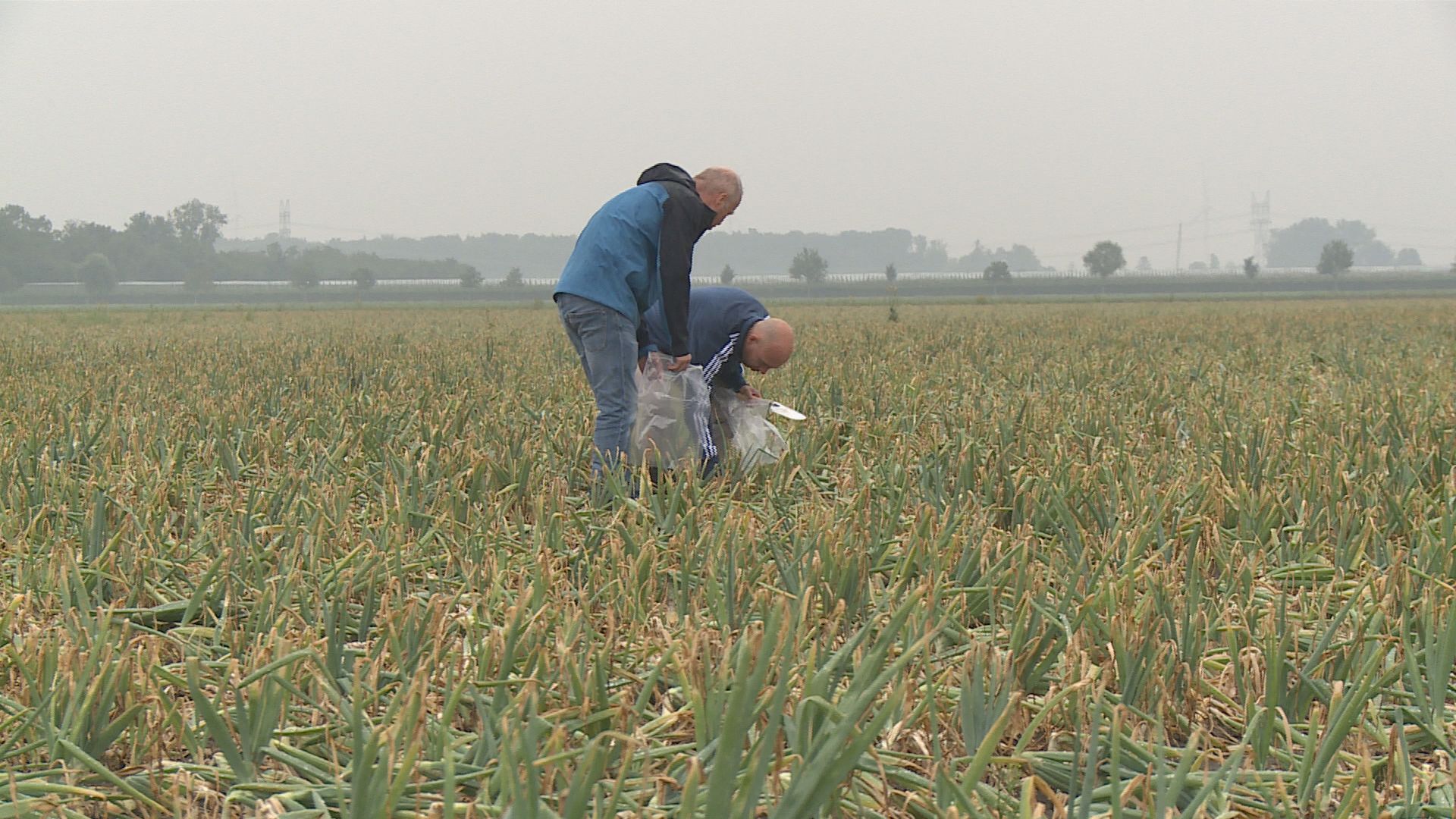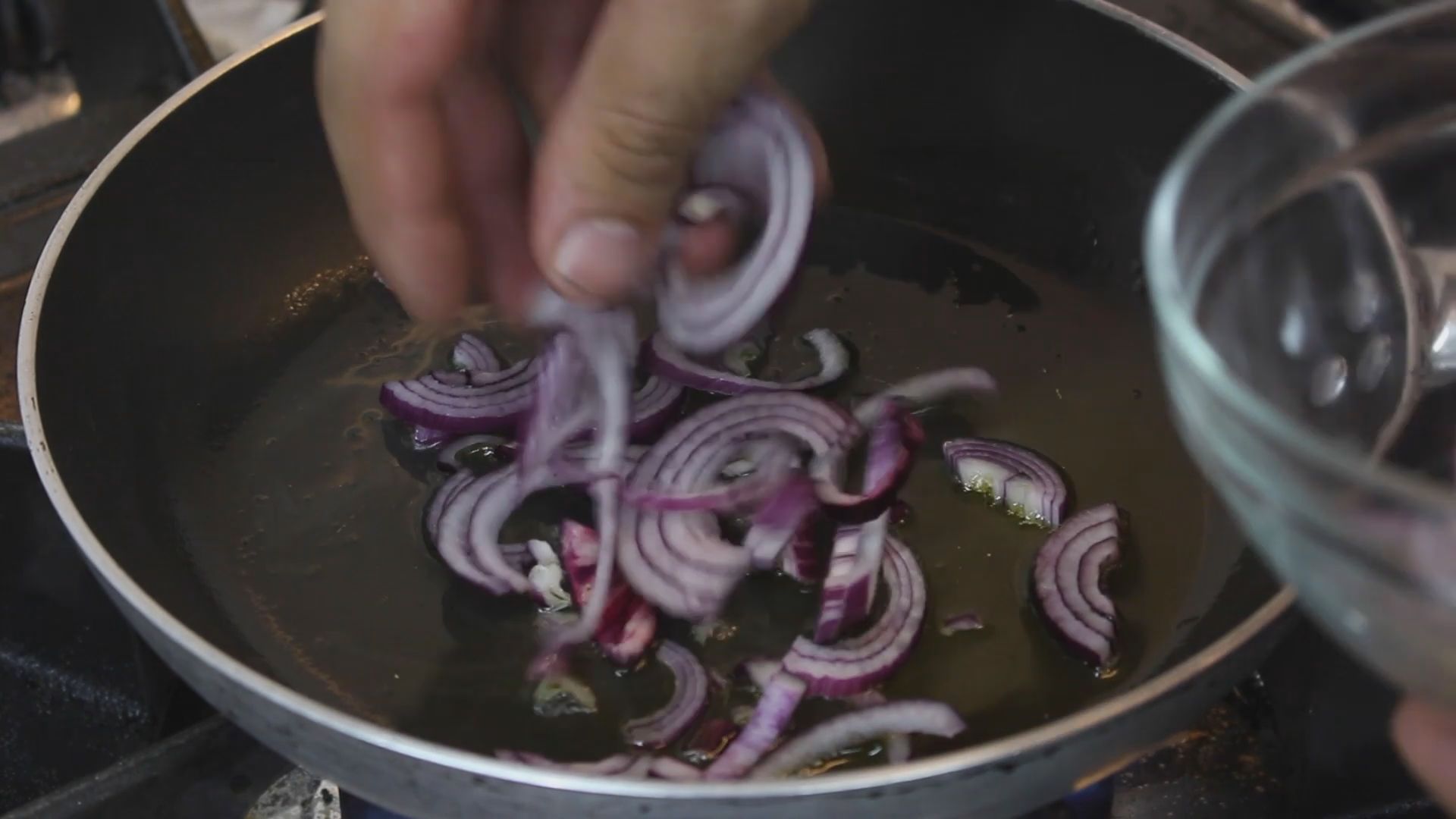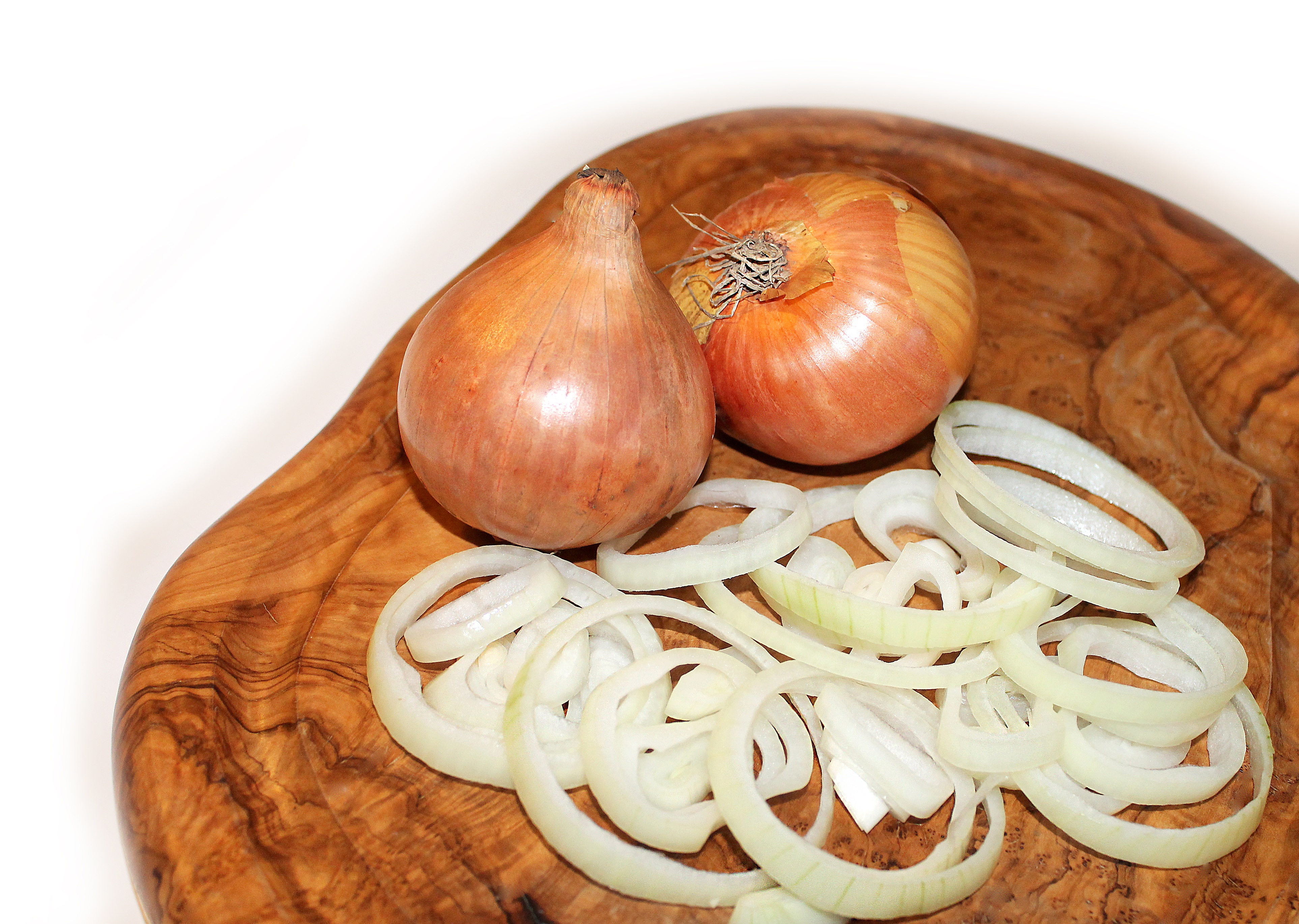Is one onion the same as another? And if not, what are the differences? Professor Martin Bezemer from Leiden University wants to find out exactly this and is conducting research on this vegetable. He has also visited various fields in Flevoland to take onions and the soil they grow in back to the laboratory.
The most important questions: What does life in the soil do to the composition of vegetables? And can we grow onions that contain more nutrients?
It’s fieldwork for the professor. He and another researcher walk across a muddy field near Dronten. The bulb is carefully pulled out of the ground and placed in a bag. Another bag is then filled with a few shovelfuls of soil. Ten metres later, the ritual repeats itself, and the process is repeated several more times.
“We do this in many fields in Flevoland and also in other parts of the country. Everything is taken to the laboratory to be examined for composition. We are increasingly discovering that the bacteria and fungi in the soil are very important for onions. What we are looking for is what the life of the soil does for the nutrients in the vegetables,” explains Besemmer.

More nutritious onions
Flevoland is one of the Dutch provinces where the most onions are grown. It is the most widely eaten vegetable worldwide, which makes it interesting to explore its nutritional value. “If we understand what determines the nutritional value of onions, we can respond accordingly.”
“It would be great, of course, if we could develop onions with more nutritional value to feed the world’s growing population. So the idea is not to produce more, but to grow onions with more nutritional value,” Bezemer explains. He expects that in the future nutritional value may be taken into account more often, rather than just mass, when setting prices.

That doesn’t mean onions are unhealthy or that farmers are doing something wrong. “That’s nonsense, of course,” the professor adds. “Farmers know very well how to manage their soil, but little is known at this micro level.” The nice bonus is that Bezemer also looks at the nutritional differences between organic and non-organic onions. “A lot of people think organic onions are better, but I want to check that out,” the professor says.
Bezemer expects the results of the research to be available in the spring. Individual field results are also being shared with landowners. “We’re very curious. I expect soil life to have a big impact on onions and their quality.”

